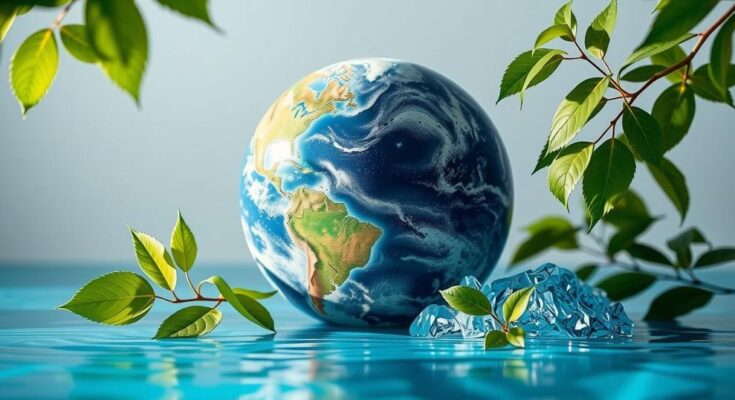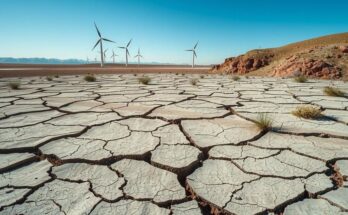The World Economic Forum’s Global Risks Report 2025 highlights armed conflict and climate change as the primary global threats. India will actively engage in the upcoming WEF meeting to showcase advancements in AI, sustainability, and innovation, focusing on collaborative global initiatives. The report emphasizes the urgency of addressing immediate risks such as misinformation and societal polarization, indicating a need for cohesive international action.
The World Economic Forum’s Global Risks Report 2025 identifies armed conflict and climate change as the foremost threats to the global economy, alongside other urgent risks that necessitate immediate attention. Surveys conducted with over 900 risk experts and industry leaders revealed that 23% regard state-based armed conflict as the most pressing risk for 2025, while 14% emphasize extreme weather events driven by climate change, citing recent devastating wildfires in Los Angeles as an illustration.
The report highlights extreme weather as a primary concern for the next decade, alongside significant risks such as biodiversity loss, alterations to Earth’s systems, and depletion of natural resources. Additionally, misinformation remains a leading global risk for the second year in a row. Other immediate threats identified include societal polarization and cyber warfare, highlighting the need for cohesive global action.
Scheduled from January 20 to 24, 2025, in Davos, the WEF’s annual meeting will convene world leaders under the theme “Collaboration for the Intelligent Age.” India’s Commerce Ministry has stated its aim to enhance its role in fostering innovation and global partnerships at the forum. India will aim to demonstrate its progress in artificial intelligence (AI), sustainability, and forge stronger international ties.
At the meeting, India will concentrate on five key initiatives outlined by WEF—reimagining growth, investing in people, rebuilding trust, navigating industries within the intelligent age, and environmental protection. Notably, India’s delegation seeks to articulate its holistic response to global challenges, including armed conflict, climate change, food security, and economic disparity. Several Indian enterprises will also present their innovations, showcasing India’s expanding influence in the global market.
In the context of increasing global uncertainties, the World Economic Forum’s Global Risks Report serves as a crucial indicator of the threats facing international stability and economic prosperity. The report collates insights from various stakeholders, emphasizing the significant impact of climate change and armed conflict on global stability. These challenges necessitate collaborative solutions to address their complexity and interconnectivity, thus underlining the urgency of action during the coming decade.
The World Economic Forum’s Global Risks Report 2025 underscores the critical importance of addressing armed conflict and climate change as priority risks facing the world. As nations gather in Davos, India’s commitment to innovation and global cooperation will play a vital role in navigating these challenges. Effective collaboration is essential for fostering resilience and enhancing economic stability in an increasingly complex global landscape.
Original Source: www.outlookbusiness.com




